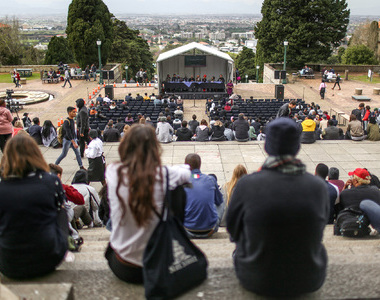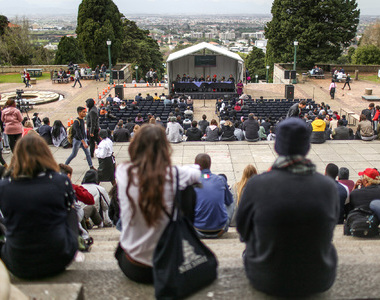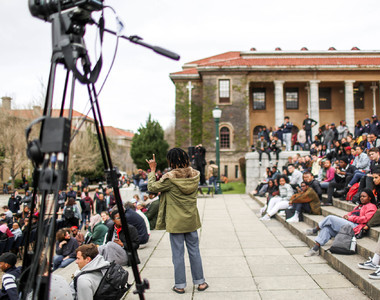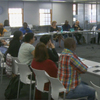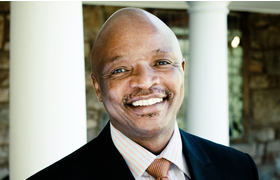Ramphosa’s commitment to a market economy
30 October 2018 | Story Alan Hirsch. Photo GCIS. Read time 6 min.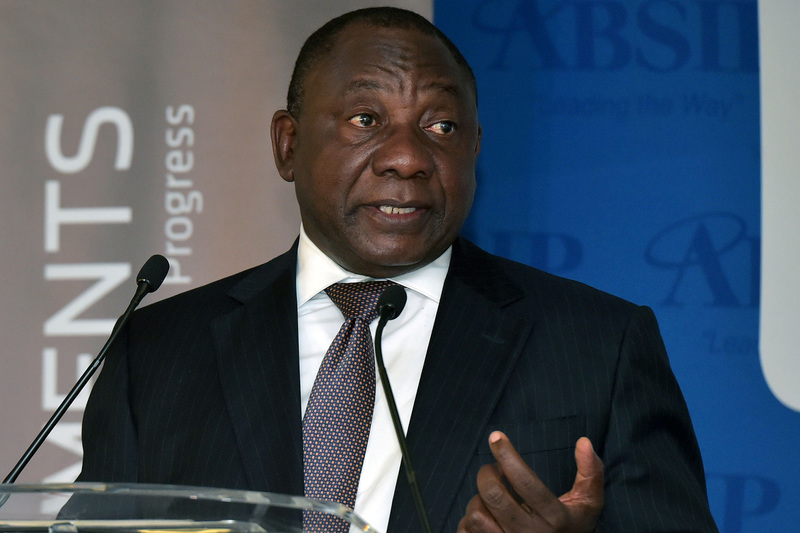
To some observers, South Africa’s recent investment summit led by the president Cyril Ramaphosa, seemed like much ado about nothing. Several of the projects announced had been incorporated into companies’ plans for some time. And, combined with the fact that the summit had a showbiz style about it, it’s tempting to see the event as little more than smoke and mirrors.
But the summit could be more than the sum of its parts. It could be an important step forward to reviving economic growth in South Africa.
One notable outcome was that, in one crucial respect, Ramaphosa nailed his colours firmly to the mast. After the confused and confusing sophistry of the era under Jacob Zuma’s presidency, Ramaphosa committed his government to a market economy, where obstacles to private investment would be removed, where possible.
This moment is reminiscent of 1980 in India. That year, Indira Gandhi committed the Indian Congress Party to business-friendly policies. Reforms were slow, picking up a little under Rajiv Gandhi a few years later. And the major structural economic reforms only took place in 1991 under India’s new Prime Minister P. V. Narasimha Rao and the new Finance Minister Manmohan Singh.
Yet, India’s growth spurt clearly began after Indira Gandhi’s signalling and Rajiv’s initial tinkering. It didn’t wait for Rao and Singh’s dramatic reforms a decade later.
This is consistent with contemporary analysis of economic growth. Recent thinking by renowned Harvard-based economist Ricardo Hausmann and colleagues suggests that what stimulates significant growth acceleration is often not major structural changes – it can be significant incremental shifts.
The economists found that major structural reforms seldom preceded significant growth accelerations. As his colleague Dani Rodrik put it recently:
in economies that suffer from multiple distortions, small changes can make big differences.
The small change made in India was a clear shift by the dominant political party towards business-friendly policies.
Could the same be true for South Africa? Has South Africa reached it’s own Indira Gandhi moment?
Signals at the summit
Amid a great deal of fanfare, an audience of 1300 business and government leaders, and one of the globe’s most successful entrepreneurs Chinese internet commerce magnate Jack Ma, Ramaphosa announced R209 billion worth of investment at the summit.
It was important for the president to meet expectations by announcing concrete outcomes. But what was possibly more important was that he used the opportunity to send out a number of signals.
To please his own constituencies in the African National Congress (ANC) and the unions, he referred to the end of the “investment strike”; some critics of business had said they were holding back their investments as a deliberate policy.
More significantly, most of his messaging was aimed at reassuring the business community. He talked about how their investments and property were safe and how their factories were protected from expropriation by an independent judiciary and the rule of law.
Land reform would continue, he said. But it would be “fair and equitable”. Transformation would continue:
while providing certainty to those who own land, those who need land, and to those who are considering investing in the economy.
Perhaps the most telling signal was the apparently off-the-cuff remark he made dismissing the concept of “white monopoly capital”. At the dinner which followed the conference he said:
We have become accustomed to … treating our entrepreneurs and business-people (badly) and called them all sorts of names. We’ve treated them like enemies and… (called them) white monopoly capital – that must end today.
The term “white monopoly capital” is an accurate approximation of the distribution of economic power under apartheid, and much of the imbalance in economic power remains. In the Zuma era, the term was popularised by the now defunct public relations firm Bell Pottinger under contract to the Gupta family and was used by some as a cover for looting government and its agencies.
Ramaphosa, who became a successful capitalist after he left Parliament in the mid-1990s, has now signalled that he wants to build trust between government and white owned businesses. This won’t be easy. There are still elements in the ANC that reject capitalism while others want to continue using the term “white monopoly capitalism” as a battering ram.
Credibility gap
South Africa’s disadvantage is that the country’s credibility has been damaged. After 15 years of transparent social democratic policies – from 1994 to 2009 – the country lurched into confusion under Zuma’s presidency. The ANC government became opaque, volatile and unpredictable.
The consequence was a loss of credibility in the Zuma era. Ramaphosa’s biggest challenge therefore is to recover credibility.
Ramaphosa and his advisors will be asking what can we do to rebuild credibility fast?
The answer seems simple: those involved in state capture must go, looters must be punished, and constructive policies must be carefully prepared and implemented with authority and urgency. These include fixing the state owned enterprises as Finance Minister Tito Mboweni repeatedly pointed out in his recent budget speech , better regulation for the network industries (energy, telecommunications, water) and sorting out public transport systems. In addition, honest leaders need to be appointed to the criminal justice institutions.
These all have been promised since Ramaphosa’s first State of the Nation Address in February.
The trickier, and implicit question that investment decision-makers will be asking is, is Ramaphosa’s sway over government as strong as that of Indira Gandhi’s in India in 1980? Or is the president yet to demonstrate complete control over the ANC?
The answer, unfortunately, is probably that an election has to be reasonably convincingly won before he can win the credibility he so badly needs.![]()
Alan Hirsch, Professor and Director of The Nelson Mandela School of Public Governance, University of Cape Town.
Institutional Reconciliation and Transformation Commission (IRTC)
The Institutional Reconciliation and Transformation Commission (IRTC) Steering Committee was established as a result of a period of unprecedented tension at the University of Cape Town (UCT) at the end of 2016. The creation of the multi-stakeholder steering committee that will oversee the proposed IRTC was one of the resolutions made in the 6 November 2016 agreement, which effectively brought the waves of continuing protest at the university to a halt.
The agreement, which was signed between the UCT executive and protesting student groups, paved the way for the establishment of the IRTC, whose aims are to
- consider all Shackville-related protests of 2016, including disciplinary procedures and interdicts
- invite submissions from all constituencies on clemencies that were granted and decide whether clemency should be turned into amnesty
- make recommendations on how the university should deal with pending cases and other such matters in the future
- make recommendations on institutional culture, transformation, decolonisation, discrimination, identity, disability and any other matters that the university community has raised over the past 18 months, or may wish to raise in the future.
The IRTC’s objective is to map an inclusive and fair course for the university as it tackles the legacy of the so-called Shackville protests and to focus on the issues that have caused division on our university campus.
Read IRTC documents:
- Read the 6 November agreement
- Read the declaration by students seeking clemency
- Read the FAQ about the agreement
- Read the criteria and process for nominating commissioners - List of Steering Committee Members
- Names of the IRTC Steering Committee members
- Email addresses of the IRTC Steering Committee members
- See the announcement of the IRTC Commissioners
- IRTC Final Report
A summary and analysis of the Terms of Reference are given in Chapter 2, starting on page 7
Feedback and responses to the IRTC report:
IRTC Final Report






Statements by the IRTC
Latest news




Reports from the Steering Committee Chair


2018 IRTC Steering Committee meetings
2017 IRTC Steering Committee meetings








